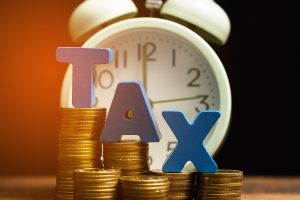 E -commerce platforms will have to report the sales details of small businesses, and take the onus of their tax payments, or face a penalty, Central Board of Indirect Taxes and Customs (CBIC) member, and special secretary to the central government, V. Rama Mathew, said. Platforms have been given the go-ahead to allow small businesses without GST registration to make online sale. The union budget’s consideration for customs duty changes is focused on two goals–improving ease-of-doing business and ensuring self-reliance. The indirect tax authority is making process changes and deploying technology to achieve the goal of ‘universal tax compliance, Mathew said in an interview.
E -commerce platforms will have to report the sales details of small businesses, and take the onus of their tax payments, or face a penalty, Central Board of Indirect Taxes and Customs (CBIC) member, and special secretary to the central government, V. Rama Mathew, said. Platforms have been given the go-ahead to allow small businesses without GST registration to make online sale. The union budget’s consideration for customs duty changes is focused on two goals–improving ease-of-doing business and ensuring self-reliance. The indirect tax authority is making process changes and deploying technology to achieve the goal of ‘universal tax compliance, Mathew said in an interview.
One of the goals of customs duty changes is streamlining of the structure. The number of rates were brought down from 21 to 13. It would be challenging to go below 13 because there are certain sectors where you have to give that leeway. The second goal is to deepen domestic manufacturing. We are structuring the rates to enable that. There are a few duty changes meant to correct the inverted duty structure and to correct the misalignment between export and import tariffs. Lab grown diamond is a new sector, which required a clarification. In telecom and agriculture sectors, we wanted to fine-tune the number of product classifications. There are 99 new additions to tariff lines (which are 8 digit codes for indentifying products). There are 153 changes in total, of which 54 are deletions. In telecom, a major rejig was needed. In the case of cotton, the requirement was to get very specific about what kind of cotton comes in. We have a large cotton growing area but we do not grow certain varieties. So we needed to be able to fine tune. So we provided a tariff line to permit that.
Has the exercise of correcting the inverted duty structure been completed?
Whatever we have noticed, we have corrected. If there are other instances that are brought to our attention, we will examine it. The proposal has to be examined about exactly how it fits into the larger policy and then we will consider.
Will the windfall tax on petroleum continue?
For the time being, yes. It is being reviewed on a fortnightly basis.
The budget proposed GST-related changes in e-commerce. What does it mean?
The e-commerce platform has to take the Goods and Services Tax (GST) payment responsibility on reverse charge. When the sale happens, they have to withhold the tax and we have introduced a small penalty clause to ensure compliance. The e-commerce platform has to provide a statement and make the payment. The penalty proposed is of ₹10,000. Essentially we made the platform responsible for deducting the tax while making payment to the seller and pay to the government. It will be effective from the date the GST Council will declare it to be effective. We are also decriminalising GST law. It is essentially, raising the monetary limit for prosecution from ₹1 crore to ₹2 crore, except in the case of fake invoicing. Also, what is covered under general criminal law, need not be in GST law. If an action is criminal under Indian Penal Code (IPC), prosecution can be launched, but it need not be under GST law.
With GST and customs duty rationalisation behind us, what is direction of indirect tax policy?
We are working towards the objectives of ease of doing business and Atma Nirbhar (self-reliant) Bharat. We are looking at moving towards universal compliance. We are putting in processes and use of technology so that compliance becomes easier. Process has to be sophisticated to make the interphase simple.


